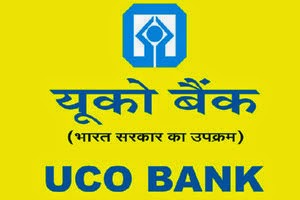Why Uco Bank has to pay Rs.1 lac fine to its ex-officer [Supreme Court Decision]


Supreme Court directed Uco Bank to pay fine of Rs.1 lac to one of its retired officer for unnecessarily litigate against the employee. This is an interesting case, where the bank issued chargesheet after 7 years and immediately before retirement of the employee invoked regulation that disciplinary proceedings will continue against the employee after his retirement and has not been paid retirement dues and monthly pension.
Mr. Rajendra Shakar Shukla was due to superannuate on 31st January, 1999. A few days prior to his superannuation, the Competent Authority issued a letter invoking Regulation 20(3)(iii) of the UCO Bank (Officers’) Service Regulations, 1979. As per the said regulation “The officer against whom disciplinary proceedings have been initiated will cease to be in service on the date of superannuation but the disciplinary proceedings will continue as if he was in service until the proceedings are concluded and final order is passed in respect thereof. The concerned officer will not receive any pay and/or allowance after the date of superannuation. He will also not be entitled of the payment of retirement benefits till the proceedings are completed and final order is passed thereon except his own contributions to CPF.
Read: Expected DA for Bankers from May 2018
The allegation against Shukla was that he issued a cheque for an amount of Rs.3 lakhs in favour of his brother while at that time, Shukla had only about Rs.1,000/- in his account and later on directed the bank for stop payment. He was issued a charge sheet after about 7 years by the Bank.
High court took the view that there in case a cheque issued by the employee was dishonoured, action may be taken by the complainant under the provisions of the Negotiable Instruments Act, 1881 but the Bank could not take action under the UCO Bank Officer Employees’ (Conduct) Regulations. The court held that this did not amount to misconduct but was an action personal to him.
Read: Latest updates on 11th bipartite settlement
Supreme Court stated that the issue of concern is the enormous delay of about 7 years in issuing a charge sheet against Shukla. There is no explanation for this unexplained delay. It appears that some internal discussions were going on within the Bank but that it took the Bank 7 years to make up its mind is totally unreasonable and unacceptable. On this ground itself, the charge sheet against Shukla is liable to be set aside due to the inordinate and unexplained delay in its issuance. The court also raised the question that if the Bank was serious about proceeding against him for misconduct, they would not only have taken prompt action in issuing a charge sheet but would not have granted him the benefit of being placed in a higher category or crossing the efficiency.
Read: Changes in priority sector guidelins
Mr. Shukla was paid nothing during the pendency of the disciplinary inquiry. He was not paid his salary because he had superannuated. For some reason he was not paid his pension, perhaps because a departmental inquiry was pending against him. He was also not paid any subsistence allowance during the period that the disciplinary inquiry was pending and even thereafter till 30th June, 1999. In other words, Shukla was made to face a financial crunch and presumably, he did not have a fair opportunity of defending himself.
The Hon’ble court stated that an employee is entitled to subsistence allowance during an inquiry pending against him or her but if that employee is starved of finances by zero payment, it would be unreasonable to expect the employee to meaningfully participate in a departmental inquiry. Access to justice is a valuable right available to every person, even to a criminal, and indeed free legal representation is provided even to a criminal. In the case of a departmental inquiry, the delinquent is at best guilty of a misconduct but that is no ground to deny access to pension (wherever applicable) or subsistence allowance (wherever applicable). As far as Mr. Shukla is concerned he was denied his pension as well as subsistence allowance which prevented him from effectively participating in the disciplinary inquiry.
Accordingly, while dismissing the appeal of the bank against High Court Order, Supreme Court imposed costs of Rs. 1 lakh towards his legal expenses.
Recent Posts
Vacancies for CGM, GM, DGM and AGM increased in all Public sector banks.
Finance minister has approved revision in CGM level post in public sector banks. Earlier, the…
What is working Capital?
Working Capital is a financial indicator of operational liquidity of a business organization. Working Capital…
What is Pari Passu Charge | Simple Explanation
Meaning of pari passu charge - Pari-passu is a Latin phrase, which means "equal footing". …
Simplified Turnover Method for working capital assessment: FAQs
The Simplified Turnover Method is normally used by banks in order to assess the working…
Difference between LC and SBLC – Simplified
Letter of Credit (LC) and the ‘Standby Letter of Credit' (SBLC) are used by Importers…
Punjab National Bank Doubles Diwali Gift for Employees
Punjab National Bank (PNB) has announced a Diwali surprise event for its employees. To express…
